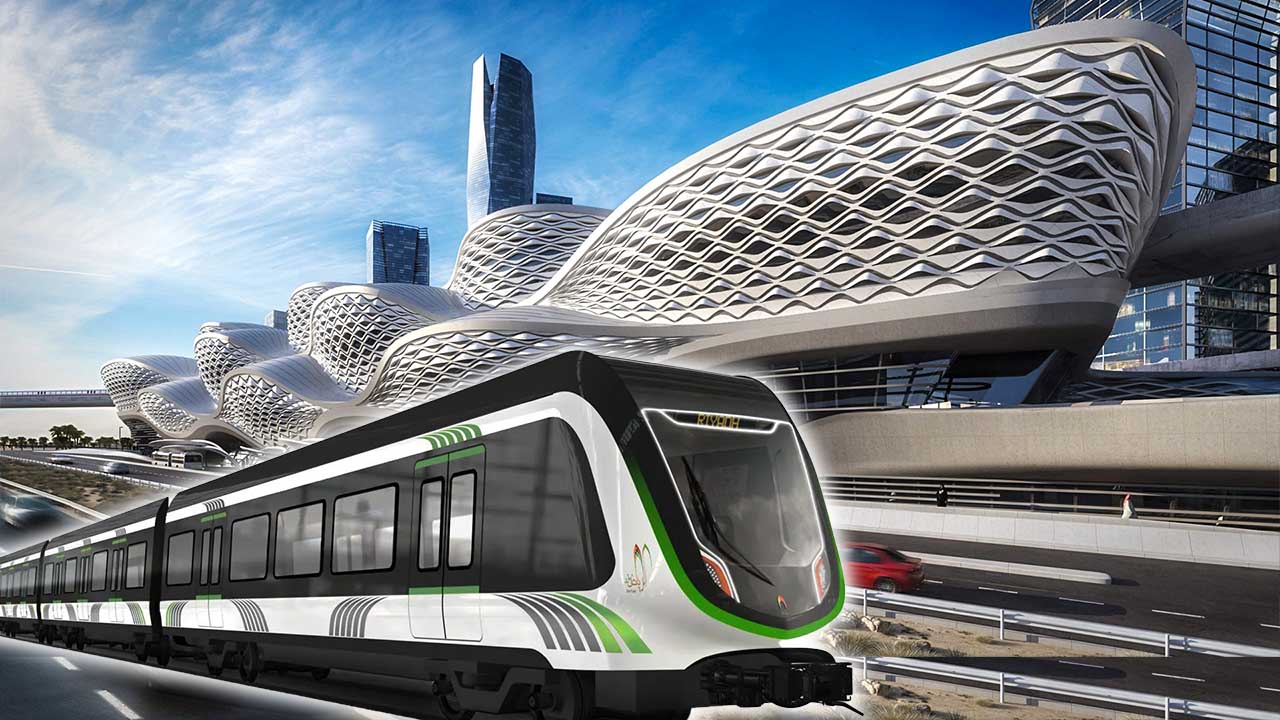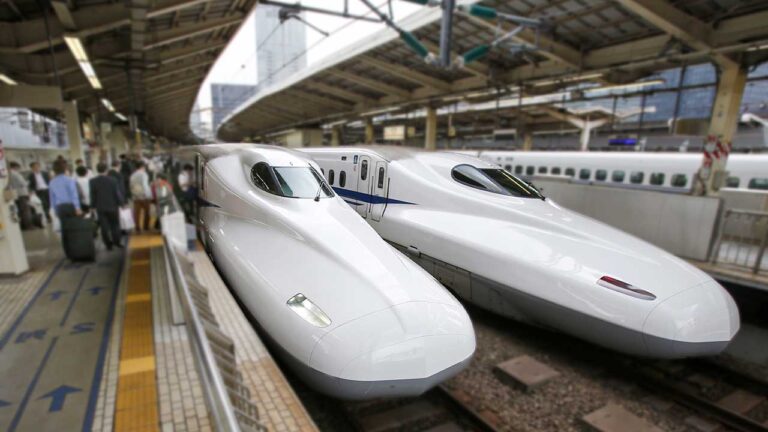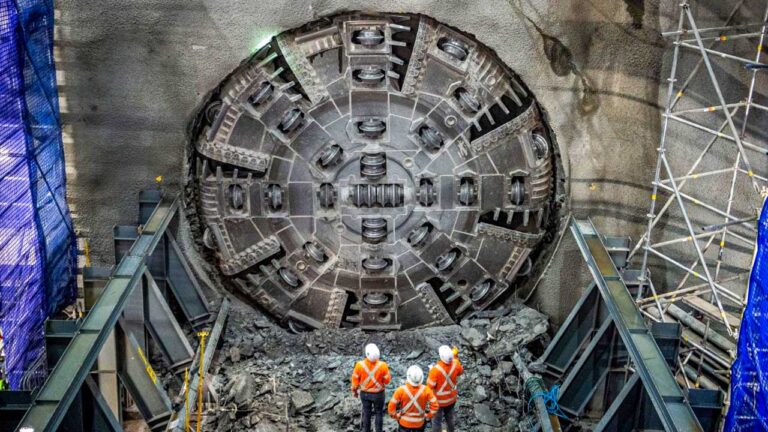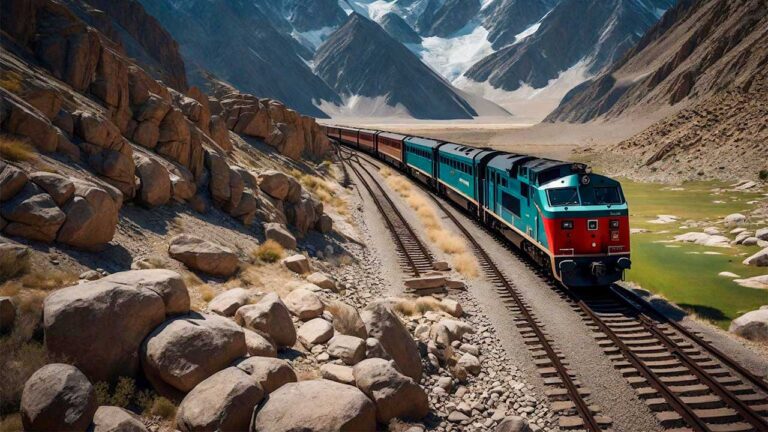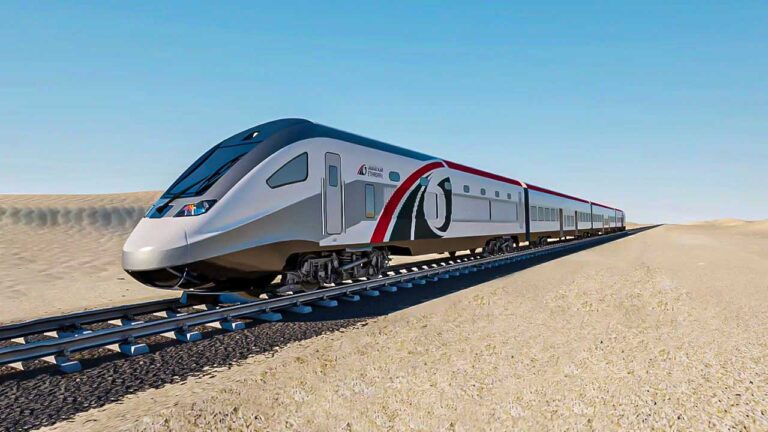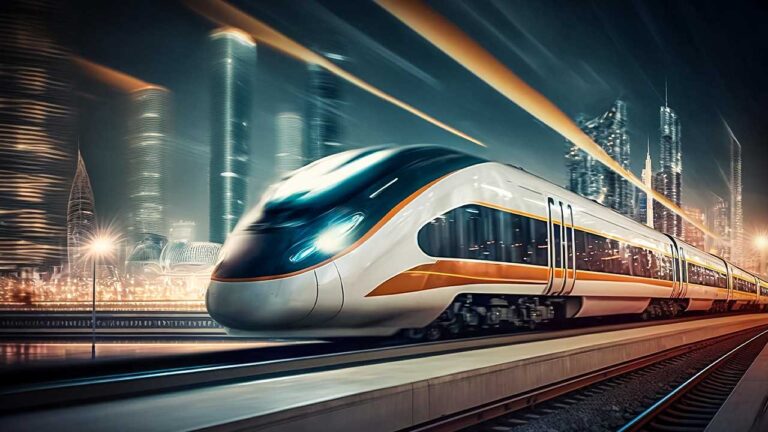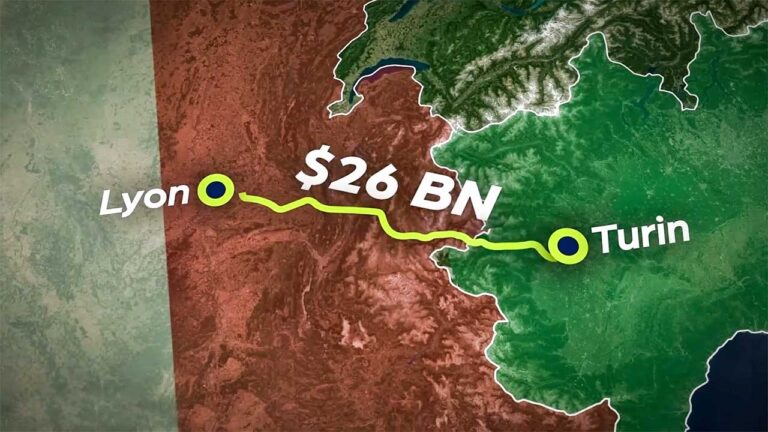Saudi Arabia Races to Complete the $22B Riyadh Metro on Time
Under Vision 2030, the Saudi Arabian government has embarked on numerous ambitious projects that were once deemed impossible. Over the past decade, the nation has channeled billions of its oil revenues into initiatives aimed at creating a lasting legacy. This strategic investment underscores the kingdom’s commitment to modernization and diversification of its economy.
Presently, Saudi Arabia is preparing to host two major international events, offering significant prospects for economic growth, increased tourism, and enhanced political influence. Upcoming Events of Riyadh Expo 2030 and FIFA World Cup 2034 represent a pivotal moment for the kingdom as it endeavors to reshape its economic landscape and bolster its global standing.
Riyadh, the thriving capital and largest city of Saudi Arabia, showcases a myriad of impressive attributes. Its modern identity took shape after the demolition of defensive fortifications in the 1950s. Since then, Riyadh has undergone successive waves of expansion and urban development, solidifying its status as the premier metropolis on the Arabian Peninsula. Drawing an estimated five million tourists each year, the city has become a magnet for visitors seeking its unique blend of culture, commerce, and innovation.
Similar to other initiatives in Riyadh, the development of the rapid transit system is being accelerated to align with the demands of the modern era.
Also Read: Switzerland is Building Tor Alva the World’s Largest 3D Tower
Introducing the Riyadh Metro network: comprising six lines, 85 stations, and spanning an impressive 176 kilometers of new track across the sprawling expanse of a city constructed upon sand. This monumental endeavor Saudia Arabia is building Riyadh Metro network which stands as one of the globe’s most expansive single-phase metro projects. With a total budget of $22.5 billion
The Riyadh Metro stands as a groundbreaking initiative aimed at revolutionizing the public transportation landscape in the capital of Saudi Arabia.
The metro system comprises six distinct train lines, collectively covering an impressive distance of 176 kilometers. Each line serves diverse areas of the city, seamlessly connecting residential neighborhoods, bustling commercial hubs, and iconic landmarks.
With a total budget of $22.5 billion, the Riyadh Metro project embarks on an ambitious endeavor to revolutionize Riyadh’s public transportation infrastructure, envisioning the establishment of a modern and efficient metro network.
Initiated several years ago, the construction of the Riyadh Metro has been ongoing, marking a significant endeavor in urban development. As of the present, the project remains under construction, with anticipation building for its slated opening later in the year 2024.
Saudi Arabia has successfully secured the hosting rights for World Expo 2030, anticipated to draw tens of millions of tourists from more than 100 nations. Moreover, it is currently leading the bid to host the 2034 World Cup. These landmark events are poised to propel Riyadh into global prominence, igniting a surge of investment totaling billions of dollars in various construction projects.
One notable initiative is the planned construction of a new stadium in Qiddiya City, envisioned as the future entertainment hub of Saudi Arabia. Yet, the realization of these ambitious endeavors critically depends on the implementation of a robust transportation network, seamlessly connecting these developments.
The Riyadh Metro forms a pivotal component of a comprehensive public transportation strategy. Alongside the metro system, an extensive bus network has been established, boasting a fleet of 956 buses traversing a total distance of 1,150 kilometers within the city limits.
With its primary objectives centered on alleviating traffic congestion, enhancing air quality, and facilitating enhanced mobility for both residents and visitors, the Riyadh Metro promises to deliver significant benefits to the city. By offering a convenient and efficient mode of transportation, it aims to cater to the daily commuting needs of the populace.
Elevating Riyadh’s status on the global stage, the authorities have endorsed the development of a world-class public transport infrastructure. From meticulously designed metro stations to state-of-the-art trains, every aspect of the Riyadh Metro adheres to rigorous international standards, ensuring a seamless and comfortable commuting experience for passengers.
Operated by fully automated, driverless trains, the Riyadh Metro leverages advanced technology to ensure precise scheduling, efficient operations, and heightened safety measures.
Constructing the Riyadh Metro in a desert environment presented a myriad of challenges that engineers and workers had to overcome.
In fact, Riyadh’s scorching temperatures, particularly during the summer months, posed significant challenges. Engineers had to design stations, tracks, and other infrastructure to withstand extreme thermal stress, utilizing specialized materials and insulation to prevent warping, cracking, or degradation.
Materials had to withstand not only extreme heat but also sand abrasion. Engineers opted for corrosion-resistant metals and durable concrete mixes, while UV-resistant coatings were applied to surfaces to protect them from sun damage.
Additionally, the instability and propensity for shifting of the desert soil required engineers to meticulously assess soil properties and design foundations accordingly. Pile foundations, deep footings, and ground stabilization techniques were employed to ensure stability.
The prevalence of sand dunes in the region made grading the land to create a level surface for tracks and stations a labor-intensive process. Proper drainage systems were essential to prevent water accumulation during rare rain events.
In addition, three massive tunnel-boring machines were employed to drill and excavate 40% of the route, navigating beneath the city while maneuvering around existing building foundations and utilities.
Each of the six metro lines is color-coded for effortless identification, facilitating seamless navigation throughout the city. From the Blue Line connecting King Khalid International Airport to the city center to the Purple Line bridging the northern and southern regions, each line serves specific areas with clarity and convenience.
Embracing modernity and innovation, the metro stations boast striking architectural designs. Some stations incorporate unique elements inspired by Saudi culture, harmoniously blending tradition with contemporary aesthetics. Enhancing the passenger experience, some metro stations showcase captivating public art installations and verdant green spaces, adding aesthetic value to the urban landscape.
This project seamlessly integrates with the city’s extensive bus network, offering passengers effortless transfer between metro lines and buses, thereby enhancing overall connectivity and accessibility. Employing a contactless smart card system for fare payment, the metro ensures convenience for passengers, who can easily recharge their cards online or at stations, streamlining the travel experience.
Furthermore, prioritizing sustainability, the metro system features energy-efficient infrastructure. Stations are designed to maximize natural light and ventilation, while the trains are engineered to consume minimal energy, contributing to environmental conservation efforts.
The Riyadh Metro project stands as a collaborative endeavor involving contributions from several esteemed entities and architects, each playing a pivotal role in its development.
Since 2013, French consulting group SYSTRA, as part of a consortium with two other engineering firms, has undertaken the responsibility of project management and supervision for the construction of Lines 1, 2, and 3 of the Riyadh Metro.
In 2019, SYSTRA finalized a contract amendment, extending their involvement in the project into the following decade. The Riyadh Metro holds the promise of transformative change for the city’s five million residents, who presently lack adequate public transportation options within Riyadh itself.
Also Read: Gordie Howe Bridge Marks Milestone 2000 Days Into Construction
Led by FCC Construction, the FAST Consortium is tasked with the construction and design of Lines 4, 5, and 6 of the metro system. Their expertise has been instrumental in shaping the infrastructure and ensuring its successful implementation.
Zaha Hadid Architects have lent their visionary touch to the King Abdullah Financial District Metro Station, an architectural marvel near completion. This sinuous station adds a striking aesthetic dimension to Riyadh’s evolving metro network.
The “One Works” has been selected to provide comprehensive integrated detailed design and structural design for the new Park & Ride facilities as part of Riyadh Metro’s Line 3. These facilities encompass four car parks offering over 2,300 parking spaces.
The Riyadh Metro project seeks to not only enhance transportation but also improve the quality of life for residents. It encompasses the creation of pedestrian-friendly zones, cycling paths, and landscaping around the stations, fostering a more sustainable and livable urban environment. Moreover, the metro system is designed to be accessible for individuals with disabilities, ensuring inclusivity and equal access to public transportation.

